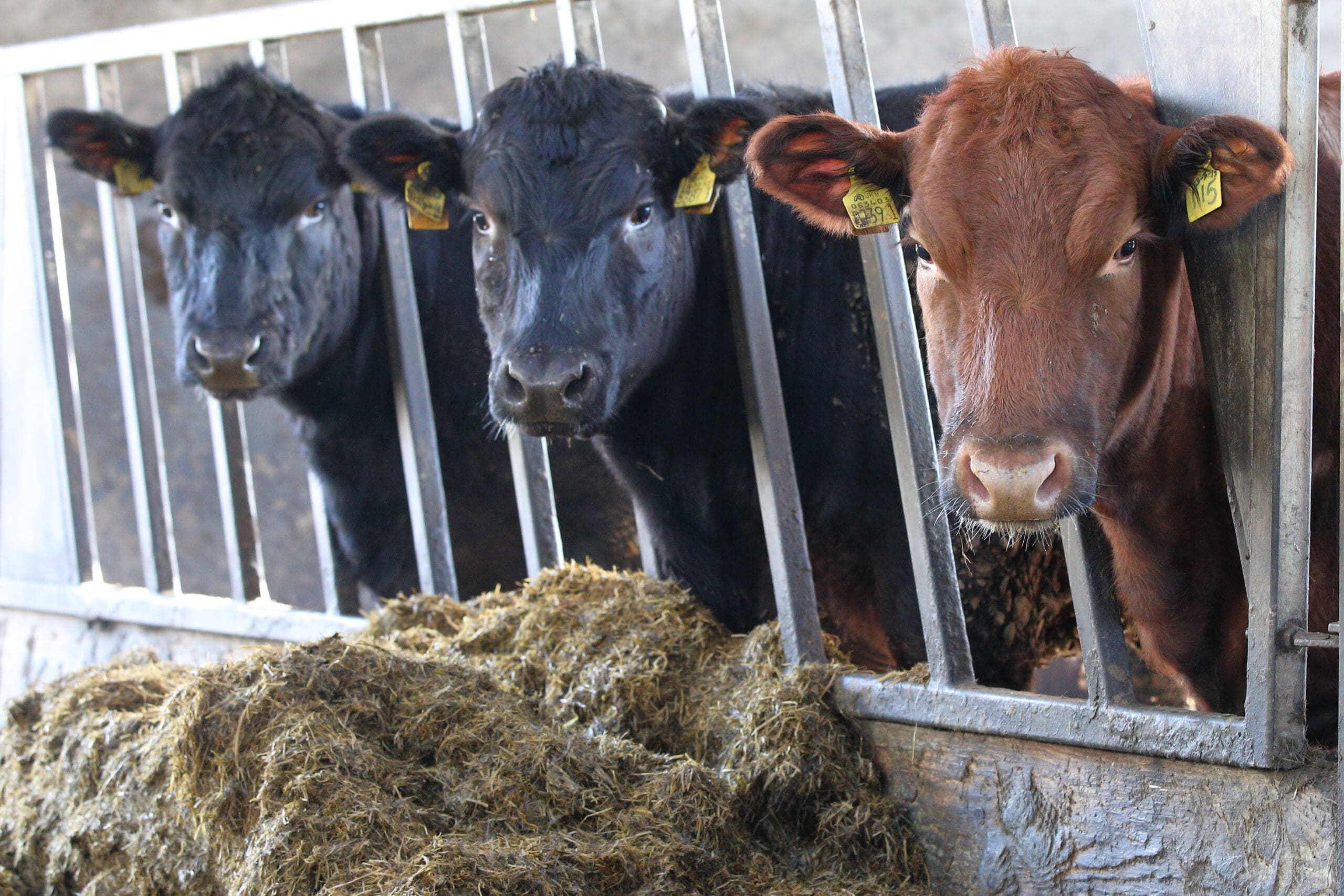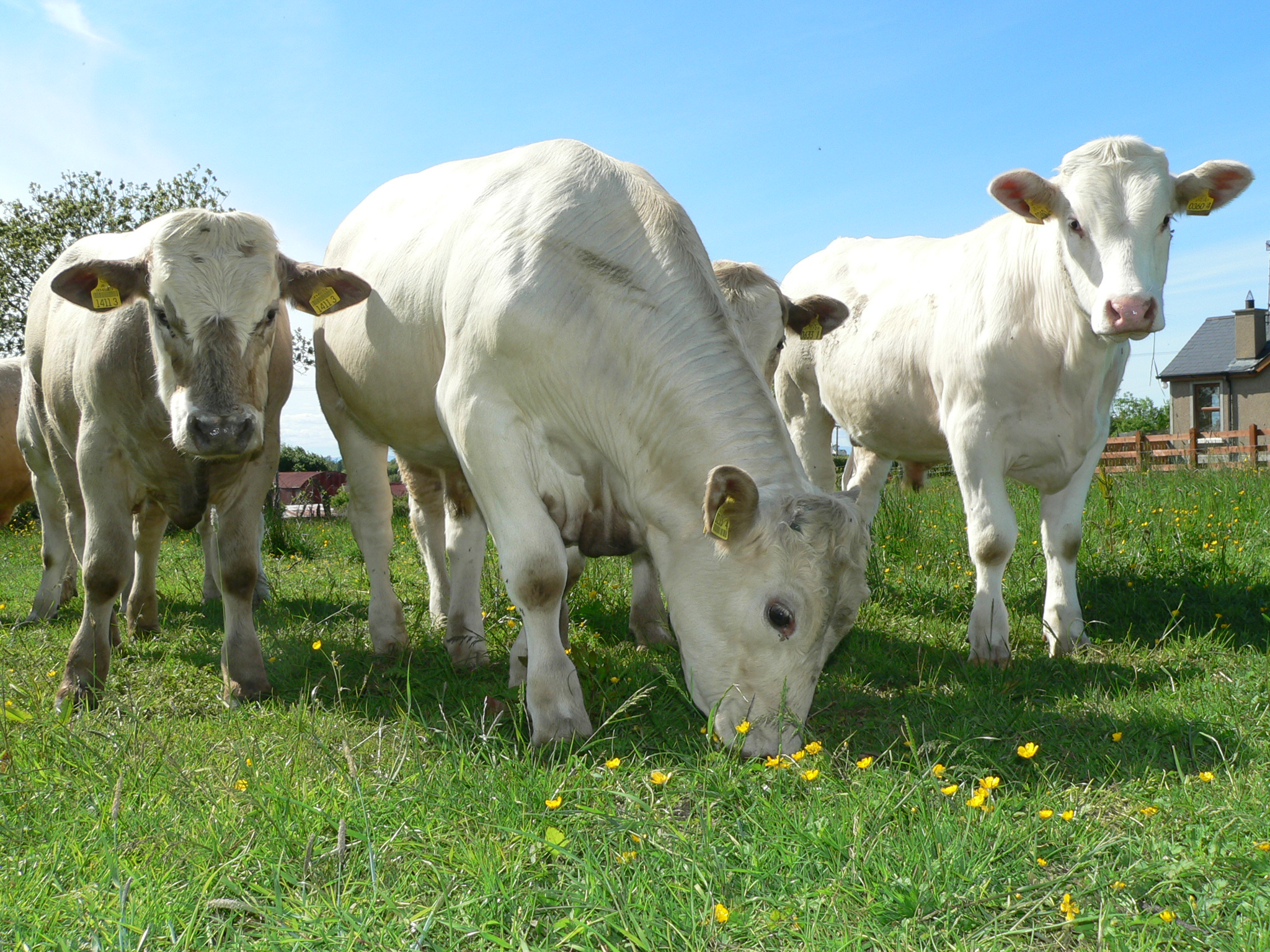
Beef cattle at Greenmount. Picture: Cliff Donaldson
Commodity watch by policy officer Kellie Rouse
In 2023, farmers experienced a very difficult farming calendar year from extreme weather to ongoing high input costs and fluctuating markets. We start into the new year of 2024 with the first new scheme from Northern Ireland’s (NI) new agriculture policy, the Beef Carbon Reduction Scheme (BCRS). Since leaving the EU, Northern Ireland has been designing a new agriculture policy that will ensure farm support meets the needs of the current challenges in NI more effectively. The new BCRS started on 1 January 2024, the Suckler Cow Scheme will commence from 2025 and Farm Sustainability Payment and Farming with Nature Scheme will follow in the next few years. There is no new budget for this new agriculture policy but instead, money will be divided amongst the schemes meaning area-based payments will be gradually reduced over the next few years. In 2024, basic payment will be reduced by 8.5%.
The BCRS scheme is being introduced by DAERA “to help improve the efficiency of the beef sector and reduce livestock greenhouse gas emissions”. This will help the agriculture sector contribute to meeting the Climate Change Act (Northern Ireland) 2022 targets. For farmers to achieve the BCRS, farmers must slaughter prime cattle 30 months and under in 2024. Farmers will not be required to complete any paperwork or online activities as DAERA will be able to identify the slaughter age of eligible cattle from information held on the NIFAIS system. Farmers will then be paid for each eligible animal in the following Spring 2025.
Over the next four years, the slaughter age will reduce from 30 months in 2024, to 28 months in 2025, 27 months in 2026 and 26 months in 2027. Farmers will be required to slaughter clean finished beef i.e., beef animals that have not been used for breeding. Beef animals will also be required to be slaughtered for human consumption and not e.g., pet food. Eligible animals moved out of NI for direct slaughter will also be eligible for the payment. For beef animals to be eligible they must be born and registered in NI, therefore ROI cattle slaughtered in NI will not be eligible for the BCRS. Payments will be made to farmers who held the animal in their herd for at least 60 days during the final 100 days of its life before slaughter. Ideally, the hope is that farmers will produce more efficiently produced finished cattle that will be either sold directly to the processor or sold at market where a value would be passed back to the farmer.

(Please see table below)
Payment rates will be phased in starting off at £20 per animal in January 2024, £40 per animal in February 2024 and £60 per animal in March 2024, and from April 2024 onwards, payment will be £75 per animal. There is no individual herd limit but there is a NI herd limit of 352,000 animals to ensure the scheme is compliant with WTO Blue Box requirements. Despite Ulster Farmers’ Union (UFU) efforts, DAERA has set no minimum slaughter age for beef animals. There is no difference in the maximum eligible age of slaughter for bulls, steers and heifers.
Therefore, as we start into a new year of farming, suckler and beef farmers will have to be more aware of the age of their cattle and how well their animals are performing. This scheme will not suit all farmers in NI and the UFU recognises the difficulty with native and traditional breeds meeting the targets as the years continue. This new scheme should be seen as an opportunity to improve our NI beef sector and ensure we reduce greenhouse gas emissions in the sector to avoid the alternative of livestock reductions.





